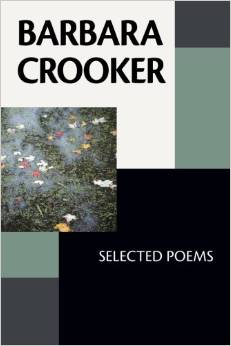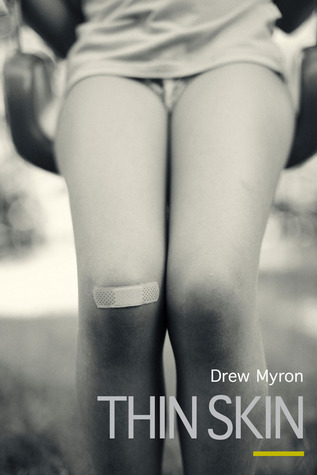
I didn’t intend to be a poet.
Or write with troubled teenagers.
Or hold the hand of an elderly woman while we read “Hope is the thing with feathers.”
I tend to gravitate to vulnerable populations — from homeless teens to end-of-life elderly. I like artists and outcasts, those of us on the edges.
But let’s back up.
My writing life began years ago as a newspaper reporter. Over the years, writing has allowed me to wear many professional hats: grantwriter for nonprofit organizations, corporate communications for large companies, freelance writer, and publicist.
I’m also a poet, and for years I wrote in the dark, keeping my writing as a deeply personal, never-to-be-revealed part of myself. When I began to take my poetry seriously, I discovered that writing needs air. It needs life. It needs to come out of the journal and given space. It needs to come off the page and into the world.
Through a series of turns, each which unfolded one after the other until it felt natural this evolution, my writing has found a place and purpose beyond my own small self. I’m here tonight to say It’s Not All About You. Or Me.
This isn’t a sermon, but it feels like a message that took me too many years to understand, and too long to put into practice. So, yes, I’m now preaching the gospel of writing beyond yourself. Of sharing your writing with people and places, and in ways that make a difference.
Writing saved my life.
As a teenager I found my way out of suicide and into the school newspaper, (and I was lucky to have a teacher who encouraged me along the way). Writing allowed me to look outside myself, and to explore what was happening in the world around me.
I went to college, enjoyed an internship at Rolling Stone magazine in New York and when I graduated I landed a job as the editor of a community newspaper in eastern Washington. There, in Goldendale, in a town of 3,000, I was a one-person show, working as reporter/editor/photographer/layout/obituary writer and phone answerer.
For 20 years, I’ve run my own marketing communications company, working with ad agencies and businesses to create a variety of marketing materials. Last week, for example, I wrote video and radio scripts for skincare products. This week, I worked in a nursing home where I get to spend time with the very ill and the very old. For National Poetry Month I shared with the residents Langston Hughes, Emily Dickinson and Naomi Shihab Nye. And when they said, “I don’t like poetry,” I said, “Well, you just haven’t met the right poem yet. Here, try this one.”
Writing is the vehicle to get out of myself, to explore the world, to understand how I, and others, feel.
Unless you
visit the dark places, you’ll never
feel the sea pull you in and under,
swallowing words before they form.
Until you visit places within you
cloistered and constant, you will travel
in a tourist daze, wrought with too much
of what endures, depletes.
If you never turn from light, close
your eyes, feel the life inside, you’ll leave
the church, the beach, your self,
knowing nothing more.
Unless you are silent, you will not
know your urgent heart, how it beats
between the thin skin of yes and no.
- Drew Myron
My most fulfilling work has been with youngsters and families in need. I started and ran the writing programs at Seashore Family Literacy on the coast in Waldport, Oregon. I worked with ages 9 to 19, leading workshops, afterschool programs, summer writing camps, and ongoing mentorship of young adults.
I never liked kids. But spending time with these kids my heart expanded, my fear melted. Working with kids who have rough lives has healed my own, has stretched my heart. I’m always amazed there is still room in there, in my heart.
I think we all just want to be heard, to be seen. And that’s why I gravitate to bedraggled kids, sad teens, lonely seniors.
Don’t get me wrong, I have ego. But I spend a great amount of time feeling scared and small, and find solace in recognizing that we’re all scared and small. I’ve been published in literary journals, and have many times attended those mammoth writing conventions, like AWP, but it’s the one-to-one connection I crave.
For those of us, like Pendleton poet Shaindel Beers, whose writing illuminates the experience of children and war, or Bette Husted who shares the challenges of poverty and rural living, we’re not going to get accolades or fame, but that one-to-one exchange, that personal impact, that moment when you say to another, in words or in presence, “I hear you. I see you. I am writing with you, for you, through you” — that’s when you shine, when your writing and life make sense.
How to breathe
I’m trying to learn something about love,
how it gives what cannot be seen.
We cannot sense space without light
can’t understand light without shade.
In my lungs, the tight narrow space
where breath is taken and given away
I’m trying to learn something about faith
like a farmer, a fisher, a lover wounded and waiting.
Memories lodge in orchards, airways, docks.
Things we make, break, mark.
The natural world has much to teach about order —
how to live in storm and sun, ebb and flow.
Geometry holds the mind
while memory, when it juts, retreats, recovers, shows us
how to hold the darkness
how to breathe.
- Drew Myron
Don’t be misled. This isn't a Mother Teresa complex. I’m not trying to save the world; I’m trying to be in it. And writing is the way I am most present, most engaged, most real.
So, here’s the call to action. (I told you this was church):
How can you apply your writing to real life?
How can you get out of your journal and into the world?
It sounds lofty, but really, it’s easy. It takes so little to make a difference, and this is both very hopeful and profoundly sad.
Here are a few suggestions. I can tell you from very first-hand experience, this will improve your writing and your life. And may help someone else to boot.
Read & write with children.
Schools and community centers are hungry for volunteers. And children are hungry for undivided attention from an adult who cares.
Meet your neighbors, have a party.
Is your neighborhood like mine? All different ages and backgrounds and interests, and though we wave hello from the car, we don't really know each other. So, get to know your neighbors with a party. Everybody brings a snack and something written — a poem, a book, a favorite quotation, a fortune cookie . . . The written word, in all its many forms, serves as your common bond and your launching point to real connection.
Start a writing group.
I was born in Oregon, moved away, returned in my 20s, moved away, and returned 12 years ago.
When I moved back, I knew no one and was desperate for writing companions, so I put out a call for writers. I placed flyers around town, in cafes, the laundromat, the post office (the true gathering place of any small town), and I offered soup. Our first meeting was in November, during a storm of howling wind and sideways rain, and I was sure no one would show up. Why would they? Who was I? What did I think I was doing?
Well, 10 happy people showed up at my house that dark and stormy night. And that writing group turned into a monthly gathering that led to an annual reading event that drew an audience of over 80 people — primarily non-writers — each year. One thing leads to another and another . . .
Visit a nursing home.
Read, talk, just be present. It takes very little effort to brighten the life of the lonely, and in turn, this will brighten you. Sounds trite, but it’s anything but. Many of the residents, once avid readers, have lost the ability to see, think clearly, and to read. Bring a book of poems, or short stories, or a newspaper, and be a personal reader.
Pair up with an artist.
You write in response to their art, or they create art in response to your writing. This will stretch you more than you’d imagine. My friend and I collaborated on a painting and poetry project while her husband was dying. This process, and the results, were full of heart and healing.
Get poems in public.
I’m the Director of Poetry for the Denver County Fair, isn’t that a great title? Six years ago we started a poetry contest and each year it grows more popular. We now get more poems than pickles, pies or pigs! And the contest was so fun we added a poetry performance. And that was so fun we added a poetry booth where people pay for poems written on-the-spot. And it just goes on and on . . .
The point of all this reaching out, stretching and giving, is that writing needs air. Writing, and writers — that’s all of us — thrive when we get out of the journal, get off the page, and walk into the world.
Bathroom Stall
The stranger who has wet herself tips her head close to yours.
You just want to shop, buy vegetables for dinner, some sort of meat. You don’t have time. It’s late, or early, your list is long. You’re wearing the good skirt, the one that skims the waist, slims your legs. But there’s her dress, now sopping. She’s bunching the fabric, trying to hide the accident, and this small dank space smells like a pen of puppies.
You must be an angel, she says.
You’re no angel. You’re removed, mysteriously lifted from the stench of spreading urine. You banter, a light voice over her heavy motorized cart as you hoist her hips and raise the dress from fleshy legs. You’re talking over the shame you both feel.
Will you open this diaper, she asks? You rip the package, and help her in. Her ankles are thick, her socks wet. Where pity, shock or sorrow should be, you feel absence. You wipe her legs, the seat of her cart.
She’s not crying, not yet. But she’s breathing hard as she palms an inhaler, the same one you carry in your purse. When I get upset, she says, dragging long on a small puff. It’s then you crumble. She is you. This will be you. This may already be you.
Everything moves slow in this confessional. It takes four turns to maneuver the cart out of the stall. At the sink, you wash away secrets. At the door, she stops, reaches in her cart, says, Let’s have a snack. You don’t want to eat sweets in a dirty grocery store bathroom.
You feel sick. You hesitate. But it’s all she has to give, so you say, Let me help you open that. This gesture, this simple fix, it’s all you have, too.
- Drew Myron
Let's face it, not everyone can write. Even on our bad days, when we’re stuck and blocked and whining, we’re better writers than most of the population. No really. We often take for granted what comes to us naturally.
Not everyone has your skill and heart. You have so much to offer. I’m pleading with you now, to share your words, to share your self.
— A presentation by Drew Myron for the First Draft Writers' Series, at the Pendleton Center for the Arts, in Pendleton, Oregon, on May 19, 2016.
Drew Myron is author of Thin Skin, a collection of photos and poems. She frequently collaborates with artists and her work has appeared in numerous galleries, books, and literary magazines. She heads a marketing communications company with a focus on hunger, homelessness, literacy, and health. As a journalist, she’s covered news, arts, entertainment and travel for a variety of print and online publications.

 So many people whose lives are flourishing around us proceed from a resilience born from tragedy, trauma, and deep loss. . . In speaking with survivors about sexual violence and its aftermath, I’ve come to appreciate the word resilience.
So many people whose lives are flourishing around us proceed from a resilience born from tragedy, trauma, and deep loss. . . In speaking with survivors about sexual violence and its aftermath, I’ve come to appreciate the word resilience. 


























